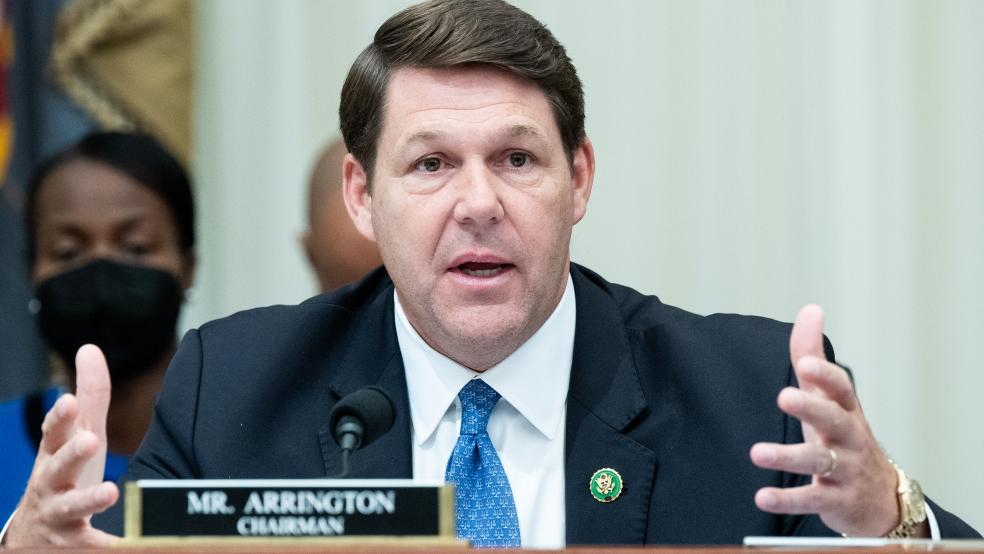The House Budget Committee held a hearing Tuesday to discuss and debate the pros and cons of several proposals to create a bipartisan fiscal commission to address the national debt and federal deficits. The hearing follows a similar one held last month as backers of a bipartisan, bicameral commission look to build momentum for the idea.
Republicans and budget watchdog groups have embraced the creation of a panel that would be empowered to come up with steps to put the nation on a more sustainable fiscal path. Some Democrats support the idea, arguing that the need is dire and that Congress has thus far failed to act, while others in the party have expressed concerns that any such panel would be used to slash Social Security, Medicare, Medicaid and other programs while providing politicians cover to avoid taking responsibility for those cuts.
House Budget Committee Chairman Jodey Arrington, a Texas Republican, said Wednesday that he believes that debt and deficits are “the most significant challenge facing our nation in the 21st century,” threatening both the U.S. economy and national security.
“I believe this is our generation’s World War and the cost of losing this war will be catastrophic and irreparable,” he said, adding, “I don’t think a fiscal commission is the panacea for all of our financial woes. I just don’t think that there’s a silver bullet. At the end of the day, we have to have the political courage as a body to cut through the brinkmanship, the weaponization, the fearmongering that we get from the outside and the inside, and we have to hold hands, as they say, and move forward with courage.”
Still, Arrington said, a bipartisan commission may be able to provide constructive dialog that leads to some consensus on a more sustainable path.
Rep. Brendan Boyle of Pennsylvania, the top Democrat on the budget panel, expressed skepticism that a commission would work and pointed to a history of failures for similar bodies in the recent past. Boyle also noted that some Republican presidential candidates, including former South Carolina Gov. Nikki Haley, have talked about raising the retirement age. “That's a little like saying, We need to burn the village in order to save it. It just isn't true,” Boyle said.
Boyle also reiterated his view that raising revenue should be the solution to avoiding future Social Security and Medicare benefit cuts. “You can have the greatest, biggest blue ribbon possible and put that on a commission. That won't be a substitute for the fact that ultimately, individuals will have to put up a vote, either saying yes, this is how we're going to raise more revenue, or yes, this is how we're going to enact cuts,” he said. “I'm very clear the side that I come on.”
Rep. Jim McGovern said he is “deeply skeptical” of the commission idea. “First, there is already a bipartisan forum where these kinds of decisions should get made: It's called Congress. And we shouldn't pass the buck to a fiscal commission to do the work that we ourselves don't want to do. If we don't want to do it, maybe we should leave.”
McGovern argued that there are plenty of legislative proposals to address the nation’s fiscal challenges, so the problem lies with lawmakers.
Democratic Rep. Scott Peters of California argued that Congress is clearly not capable of addressing the problem through regular order — and that a plan from a bipartisan commission would be a smart way to erode the leverage of Republicans seeking to slash safety net programs and avoid the threat of automatic cuts in the future. “The best thing that we can do to protect Medicare and Social Security is to act now," Peters said. "A commission gives us a fact-driven venue, instead of some waiting-until-the-last-minute, backdoor, 11th-hour deal between party leaders.”
The budget panel also heard from Republican Sen. Mitt Romney of Utah and Democratic Sen. Joe Manchin of West Virginia, who earlier this month joined forces to propose legislation that would establish a 16-member bipartisan, bicameral commission consisting of 12 elected officials and four outside experts. The commission would be charged with proposing a plan to stabilize the ratio of public debt to GDP over 15 years and improve the solvency of the Social Security and Medicare trust funds. A legislative proposal approved by the commission would get expedited consideration in both chambers of Congress.
"If we don't fix this mess that our country is in, why, it’s hard for me to imagine a circumstance where America is able to continue to lead the world," Romney said. "If we're spending more on interest than we're spending on defense, then how in the world are we going to keep up with China?”





